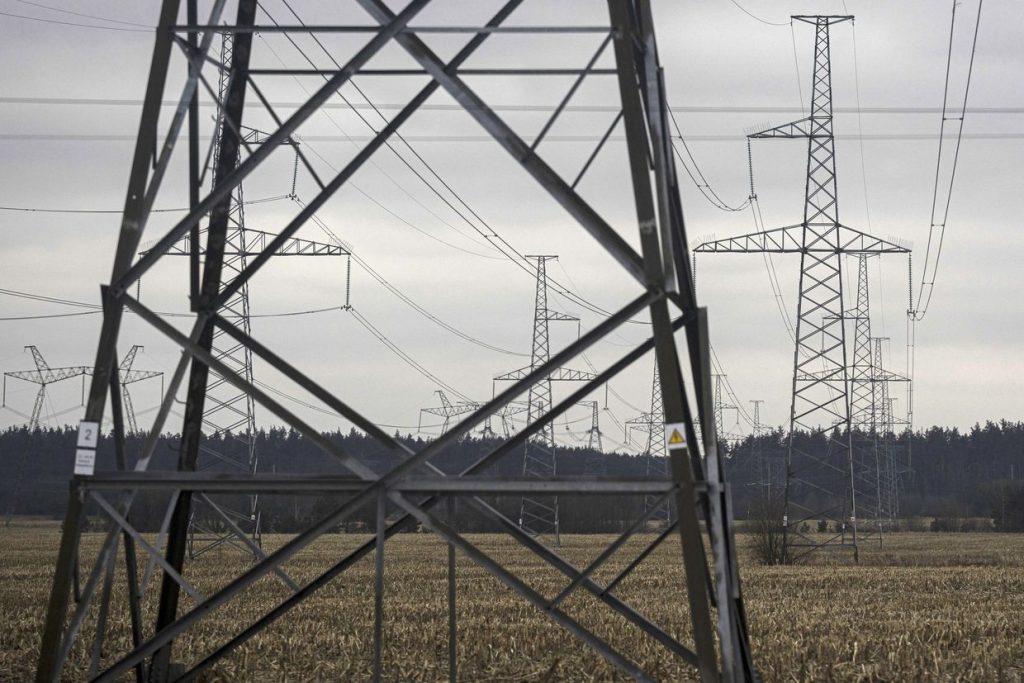Russia has intensified its attacks on Ukraine’s critical infrastructure, leading to power deficits in certain regions and the implementation of scheduled blackouts by the country’s state grid operator, Ukrenergo. These blackouts were put in place in six regions, including Dnipropetrovsk, Sumy, Poltava, Donetsk, Zaporizhzhia, and Kirovohrad oblasts. The lack of generating capacity in the energy system, coupled with high consumption and recent Russian attacks on Ukrainian power plants, has led to this situation. The energy system in Ukraine has been heavily targeted by Russian missile and drone strikes, causing significant damage to power plants and resulting in disruptions to electricity, heating, and water supply.
The recent wave of missile and drone attacks by Russia on Ukraine’s critical infrastructure, between March 21-25, has exacerbated the energy crisis in the country. These attacks have targeted energy facilities across Ukraine, with reports indicating over 400 missiles and 600 drones launched by Russian forces. This deliberate strategy by Russia aims to knock out Ukraine’s power grid and create further instability in the region. The attacks have significantly damaged the thermal generating capacity of DTEK, Ukraine’s largest private energy company, leaving the country vulnerable to power outages and blackouts.
The impact of these attacks on Ukraine’s energy system has been severe, with widespread damage to power plants and infrastructure. The lack of generating capacity to meet the high consumption in certain regions has forced Ukrenergo to implement scheduled blackouts in order to manage the situation. The escalation of Russian attacks on critical infrastructure reflects a broader strategy by Moscow to destabilize Ukraine and undermine its sovereignty. The country has been facing a challenging winter as a result of these attacks, with power outages becoming a new reality for many Ukrainians.
The situation in Ukraine highlights the ongoing conflict between Russia and Ukraine, with the former using aggressive military tactics to target the latter’s critical infrastructure. The energy system in Ukraine has been a key target in these attacks, leading to power deficits and disruptions in supply. The country’s state grid operator, Ukrenergo, has been working to manage the situation and minimize the impact on citizens through the implementation of scheduled blackouts in affected regions. The international community continues to monitor the situation closely and support Ukraine in its fight against Russian aggression.
The energy crisis in Ukraine has put a strain on the country’s ability to meet the electricity needs of its population, especially in regions heavily affected by Russian attacks. The damage to power plants and infrastructure has limited the generating capacity of the energy system, leading to blackouts and disruptions in supply. The targeted attacks on critical infrastructure by Russia reflect a deliberate attempt to weaken Ukraine and create instability in the region. The country’s resilience in the face of these challenges and its efforts to maintain essential services for its citizens demonstrate its determination to withstand Russian aggression and protect its sovereignty.
As the conflict between Russia and Ukraine continues, the energy system in Ukraine remains a major target for Russian attacks, leading to power deficits and disruptions in supply. The recent wave of missile and drone strikes on critical infrastructure has exacerbated the energy crisis in the country, forcing Ukrenergo to implement scheduled blackouts to manage the situation. The damage caused by these attacks has significantly impacted the country’s ability to provide essential services to its citizens, highlighting the urgent need for international support to help Ukraine strengthen its energy infrastructure and defend against further aggression from Russia.


